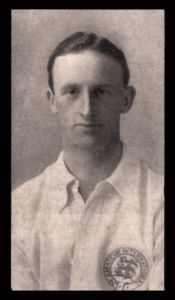By Jon Holmes
I’d been a football writer for more than 13 years before I felt confident enough to write about someone in the game who I knew was, like me, a gay man.
At the time, I didn’t mention the personal significance of getting that article published. It was a feature for the Sky Sports website about ‘Coming Out To Play’, the autobiography of Robbie Rogers who had come out publicly soon after his mutually-agreed exit from Leeds United.
The book was being released just before Rogers and his LA Galaxy team-mates would play in the MLS Cup in December 2014. It resonated with me immensely.
I quoted a passage: “Keeping such a tight lid on myself because of my sexuality made it impossible to feel the whole range of emotions that people normally feel… I wound up feeling isolated whether I was around people or not.”
That had been my experience too, throughout my 20s and early 30s. I’ve always thought the culture of a football newsroom in the 2000s would have likely mirrored that of a football dressing room of the time – male-dominated, laddish, competitive, with emotions often conveyed through the medium of the sport we all loved and covered.
Work nights out were bonding rituals, and anyone who didn’t quite fit in for whatever reason ended up feeling awkward and wary. For me, career-driven and closeted, my prevailing thought was – don’t give the game away.
Constantly checking and editing myself put enormous pressure on my mental health. I got increasingly low and lonely. I now feel immensely fortunate that before my unhappiness took a serious hold, I met a funny, handsome 28-year-old and fell in love.
Chris had none of the emotional hang-ups that I was carrying. Seeing in him and his friends what a liberated life could be like was all I needed. I rushed out of my closet in a hurry, telling all my close family and friends that I was gay in just a matter of weeks.
Some people said they weren’t that surprised and were pleased for me, which was well-meant but a little unhelpful – I wished they’d taken the time to suggest to me, however subtly, that I would be accepted. Others went out of their way to be supportive.
My parents struggled when I told them the news, confirming to me why I’d carried such heavy caution around with me for far too long. However, by that stage I was so elated to be free of the weight that I could handle their disappointment.
This all happened in the time between Rogers first sharing his truth publicly in a personal blog post in February 2013 and his book coming out late the following year. Subconsciously, I needed a real-life ‘gay footballer’ success story – and the way that the Galaxy welcomed him into their family showed you could be out and be respected in this sport I loved.
We hear a lot about ‘LGBT+ role models’ these days but the representation they provide in sport is particularly valuable. For anyone who is not yet ready to accept themselves or be visible, athletes like Robbie give you reason to believe.
As for that feature I’d written, a more experienced newsroom colleague who I respected generously told me that it was a very good article, and that I should write more.
Over the next 18 months, I took the time to educate myself by learning about different LGBT+ experiences and getting involved with our own LGBT+ network at Sky. By 2016, I was writing more frequently on the topic. It meant that when the charity Stonewall was looking for a media partner to help amplify the message of its reinvented Rainbow Laces campaign, Sky Sports was well placed to sign up. I’d found my niche – since then, I’ve written well over 100 related articles, giving a voice and a platform to people across sport who are either LGBT+ themselves or active allies.
In summer 2017, I convened a pub meet-up of other sports journalists and people working in media and comms who were interested in setting up a network group. Soon after, we launched Sports Media LGBT+ – it quickly developed further into advocacy, consultancy and digital publishing, and we now have around 35 core members and a sizeable wider community across sport, with a combined social following of over 10,000.
The support of the Sports Journalists’ Association has been invaluable and it’s exciting to now be partnering in a similar way with the Football Writers’ Association.
The aim of the partnership is simple – to ensure everyone in football media who happens to be LGBT+ is reassured that they’re not alone, and that they can find solidarity and support when and where it’s needed from within our two organisations. For all those who are allies, our link-up will hopefully encourage a more active engagement on this aspect of inclusion and a knowledge base to tap into if and when any stories or opportunities arise that may require advice or additional connections.
As I reflect on getting to this point, I appreciate that even before my Robbie Rogers article in 2017, I’d almost certainly written about several gay or bi male footballers among the hundreds of match reports and transfer lines down the years – it’s just that those players weren’t out publicly. Now of course, we have many who are out in women’s football as well as those in roles in officiating, administration, player care, and associated parts of the game. When it’s the right time for others – and we can all contribute towards the cultural shift that will help to bring that day sooner for them personally – they can arrive at that moment of authenticity too.
Whether you’re playing, coaching, supporting or writing, inclusion is a team effort with a shared goal. Let’s all take Pride in the part we play so that everyone in football can achieve their very best.












